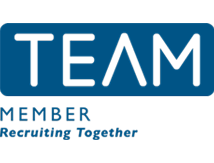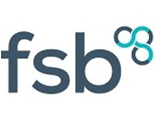Artificial Intelligence is no longer just an add-on in the workplace, it’s becoming a full-scale colleague. As a recruiter, I see both the excitement and the anxiety this creates. Some roles will evolve alongside AI, while others face the possibility of being completely replaced.
So, which jobs are most at risk of full AI takeover? Let’s break it down.
1. Data Entry & Routine Administration
AI is already proving faster, more accurate, and cost-effective at processing large volumes of data. Whether it’s inputting invoices, updating CRM systems, or handling basic compliance checks, these functions are easily automated.
➡️ Recruiter’s take: Candidates in these areas will need to retrain towards roles where interpretation, problem-solving, or customer interaction are central.
2. Telemarketing & Outbound Sales Calls
With natural language processing improving rapidly, AI chatbots can now handle entire sales funnels, from cold calls to follow-up emails. AI agents don’t get tired, don’t take lunch breaks, and can make thousands of calls simultaneously.
➡️ Recruiter’s take: The future lies in consultative, relationship-driven sales, where empathy and trust still matter.
3. Basic Customer Support (Tier 1)
Chatbots and AI call centres can now solve FAQs, process refunds, and troubleshoot common issues 24/7. For many companies, this is already the first line of defence before a human steps in.
➡️ Recruiter’s take: Human support roles won’t vanish completely, but the entry-level “scripted” customer service jobs are at serious risk.
4. Simple Paralegal & Contract Review Work
AI is exceptionally good at scanning, comparing, and flagging contract terms. Early tools already reduce the workload for junior legal staff by up to 80%. By 2035, this function could be fully automated for standard contracts.
➡️ Recruiter’s take: Lawyers and legal staff will need to pivot towards advisory, negotiation, and complex case strategy, the parts AI can’t replicate.
5. Basic Content Creation
AI can already draft blog posts, marketing copy, and product descriptions in seconds. While human editing adds polish, the reality is that many routine content roles (SEO copywriting, standard social posts, job descriptions) are threatened.
➡️ Recruiter’s take: The value will shift to creative strategy, brand voice, and originality, things AI can’t yet authentically produce.
6. Accounting & Bookkeeping (Low Complexity)
From tax returns to invoice matching, AI-driven software already automates much of the work of junior accountants. What’s left is high-level advisory, tax planning, and strategy.
➡️ Recruiter’s take: Routine bookkeeping roles will decline, but demand for accountants who can interpret data and advise clients will rise.
7. Translation (Straightforward Text)
AI translation tools are becoming near-fluent across dozens of languages. For simple documents and everyday communication, human translators will become redundant.
➡️ Recruiter’s take: Specialist translation: legal, medical, literary will still need human nuance, but basic text conversion jobs are disappearing.
What Does This Mean for Employers & Jobseekers?
- For Employers: Think carefully before automating; AI can be efficient, but it can’t replicate empathy, judgement, or cultural fit.
- For Candidates: If your role is highly repetitive or rules-based, now is the time to invest in upskilling. Focus on roles where human qualities; creativity, critical thinking, emotional intelligence are irreplaceable.
Final Thought
AI will absolutely take over some jobs entirely, but it will also create new ones we can’t yet imagine. The key for all of us is adaptability. The best opportunities in the job market of tomorrow won’t be found in competing with AI, but in complementing it.







